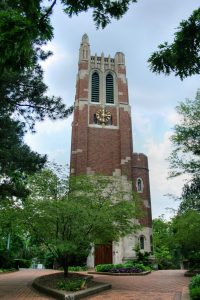Biden's Education Unity Task Force
Concerns
Alejandro Adler is nobody to be excited about. He's an academic who is associated wit silly argle-bargle like this:
...to infuse education systems in these countries with skills-based teacher training, curriculum development, technology use, and, financing; to measure the impact of these interventions on youth well-being and long-term life outcomes; and to ultimately empirically inform and systematically transform education systems to advance social development
So, focused on measuring things that can't be measured and using education as a tool for social engineering. The language of pay for success. And skills. Great. Like that hasn't been a royal pain in education's butt over the past decades. Adler is the least exciting part of this group.
Maggie Thompson is an Obama alum with a background advocacy, none of it particularly associated with education. Christina Vilsack, on the other hand, taught middle school for almost twenty years, and now does a lot of literacy advocacy when weighing her own political options. Hirokazu Yoshikawa is another academic, specializing in education and globalism, with an extra focus on pre-school; he's te co-author on a CONTINUE READING: CURMUDGUCATION: Biden's Education Unity Task Force

















